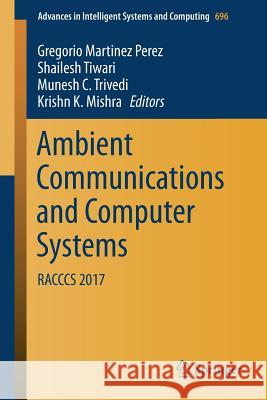Ambient Communications and Computer Systems: Racccs 2017 » książka
topmenu
Ambient Communications and Computer Systems: Racccs 2017
ISBN-13: 9789811073854 / Angielski / Miękka / 2018 / 777 str.
Kategorie:
Kategorie BISAC:
Wydawca:
Springer
Seria wydawnicza:
Język:
Angielski
ISBN-13:
9789811073854
Rok wydania:
2018
Wydanie:
2018
Numer serii:
000453356
Ilość stron:
777
Waga:
1.08 kg
Wymiary:
23.39 x 15.6 x 3.99
Oprawa:
Miękka
Wolumenów:
01
Dodatkowe informacje:
Wydanie ilustrowane











